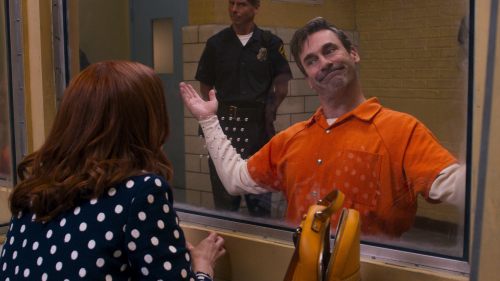NOSTALGIA Film Review: Lives Lived, Lives Lost, Lives Sold
If you've ever lived through a personal catastrophe, you know the procedure for sifting through the rubble. An insurance adjuster arrives at the scene - possibly of a flood or fire - and begins snapping photos. Your carrier hires an appraiser to set a cost for higher value items or rare family heirlooms. Loved ones stop by and begin to rummage through boxes in attics and garages, taking the things that comprised significant memories in their minds. Money is paid once coverage is settled, and whatever responsible relatives remain take it upon themselves to get rid of whatever junk is unclaimed and deemed to be just that: "trash" with no discernible worth, emotional, tangible or otherwise. Yet this simple notion remains: no amount of money or sentimental attachment can fill in for the fact that a sizable chunk of life was still lost for the individual who survived this specific calamity.
These are the driving themes behind Mark Pellington's Nostalgia - a melodramatic examination of grief, and how people pick up the pieces following both expected and unexpected deaths. While not a particularly novel narrative concept, Pellington uses the screenplay from NYC indie wunderkind Alex Ross Perry (Listen Up, Philip) to help collect quite the impressive ensemble of actors - including Jon Hamm, Ellen Burstyn and Catherine Keener - to play out various vignettes that revolve around intense emotional trauma. Pellington was allegedly inspired by a New York Times feature he read about how mental health is affected by nostalgia, following the passing of his wife and mother, adding a rather personal angle to the project. However, the result is a rather fractured collection of too quick portraits, all of which illustrate the varying tolls these tragedies can take on human beings.
Perry's script unfolds like a loosely connected mosaic of mournful individuals, starting with a somewhat tense interaction between a grumpy, retired widower (Bruce Dern) and an adjustor (John Ortiz) inspecting the man's pack-rat abode, attempting to assign price tags to objects whose value are essentially priceless to the grieving patriarch. After relaying the assessment to the man's pregnant granddaughter (Amber Tamblyn) - whose relationship to the elderly survivor seems strained at best - the insurance man is off to another job: picking through the ashes of a burned house. It's here that we meet Helen (Burstyn) - a mother and widow who called the structure "home" for 30 years before it was gone in the blink of an eye.
Naturally, Helen is inconsolable due to losing almost every memento she had of her late husband, save for his prized possession: a baseball signed by Boston Red Sox legend Ted Williams. Helen's terse but seemingly good-natured son (Nick Offerman) wants to transition her into an assisted living facility while she still has all her facilities and can function within a group of her own peers. But Helen isn't ready to simply rot away in what she perceives to be a hospital after just losing her home, and jets off to Las Vegas in order to sell the ball to a high-end collectibles dealer (Hamm). In possibly the movie's most affecting moment, the trader informs her that the piece is worth anywhere between $80 - $100,000, but that the story that went along with it will never die, as long as she remembers the numerous times her late spouse told it. It’s a bedside manner he’s obviously acquired through years of buying and selling others’ emotional treasures, and Hamm sells the scene with a quiet tenderness.
There's more to Nostalgia, of course - as even Hamm's dealer is dealing with a few emotional losses of his own - but Pellington and Perry (whose script lacks the talkative confrontation of his previous work) inject every short story with a forced yearning for poeticism that's never really earned. From Laurent Eyquem's jazzy piano score, to the honey-hued naturalism of Matt Sakatani Roe's cinematography, there's an almost anti-realist sheen slathered over this daisy chain of blues, as the whole possesses a near Altman-esque sense of coincidence to create microcosm. Still, it's all so overwrought and difficult to settle into, as nearly every single character is given their own monologue about spiritual turmoil, right down to Ortiz's insurance man coming off like this angelic agent because each story he hears is "different" and thus life-altering in some way. To wit, it’s phooey, but good-natured phooey.
Had Pellington and Perry maybe added some sort of levity to the proceedings, Nostalgia wouldn't come off so heavy-handed in its desire to make the audience feel so much. Due to the project's backstory and the director’s obvious commitment to pathos onscreen, the sincerity of everyone involved is never in question. However, Nostalgia just keeps hitting the same note over and over, climaxing with a character spelling the movie’s themes out during a final exchange. By this point, the viewer’s become numb to the cosmic implications of each individual predicament. It's just all so sad, but never actually rings true, a movie about grace in defeat that showcases few discernible grace notes.
Nostalgia opens today in select theaters.



